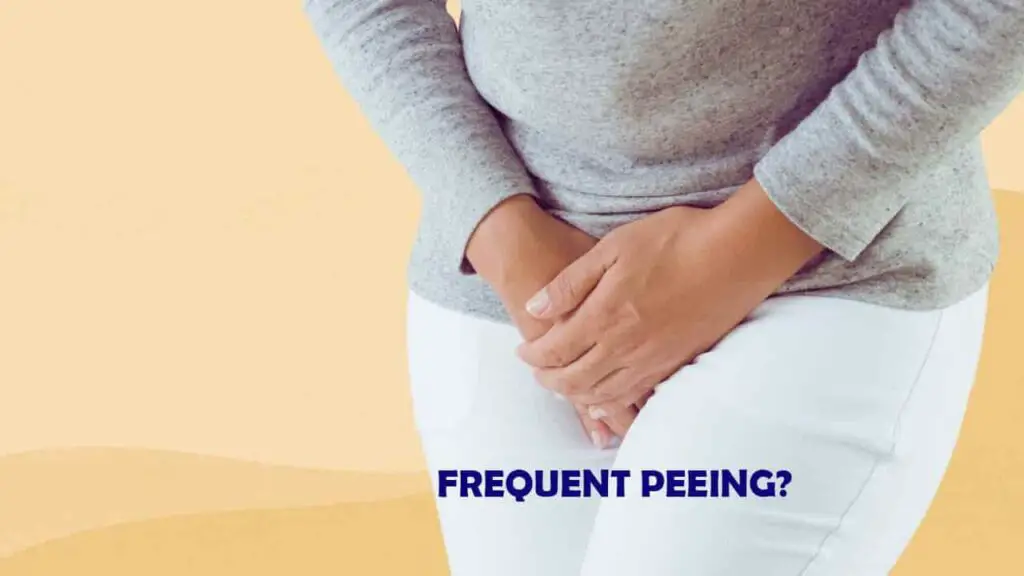Do you find yourself running to the bathroom more often than usual? Here are 12 possible reasons why you might be peeing all the time. Are you finding yourself constantly running to the bathroom to pee? Do you feel like you can’t go anywhere without having to find a restroom? If so, you’re not alone.
Frequent urination is a common problem that affects many people. In this article, we’ll discuss 12 possible reasons why you may be peeing all the time and what you can do to alleviate this issue.

-
Save
Table of Contents
12 Possible Reasons: Why Do I Feel Like Peeing All the Time
What is Frequent Urination?
Before we dive into the reasons for frequent urination, it’s important to understand what it is. Frequent urination is when you need to go to the bathroom more often than usual. This can be due to a variety of factors, including increased fluid intake, bladder irritation, and certain medical conditions.
Reasons for Frequent Urination
- UTIs: Urinary tract infections (UTIs) are a common cause of frequent urination. UTIs occur when bacteria enter the urinary tract, causing inflammation and irritation. Other symptoms of a UTI include burning during urination, cloudy urine, and a strong odor.
- Diabetes: People with diabetes may experience frequent urination due to high levels of glucose in their blood. The kidneys try to get rid of the excess glucose by flushing it out through the urine, causing more trips to the bathroom.
- Bladder Infections: Like UTIs, bladder infections can cause frequent urination. Bladder infections occur when bacteria enter the bladder and cause inflammation. Other symptoms of a bladder infection include pain or discomfort in the lower abdomen and a strong urge to urinate.
- Enlarged Prostate: Men with an enlarged prostate may experience frequent urination due to the pressure the prostate puts on the bladder. This can cause the bladder to not empty fully, leading to more trips to the bathroom.
- Interstitial Cystitis: Interstitial cystitis is a chronic condition that causes bladder pain and frequent urination. The cause of interstitial cystitis is unknown, but it’s thought to be due to inflammation in the bladder.
- Pregnancy: Pregnant women often experience frequent urination due to the pressure the baby puts on the bladder. Hormonal changes during pregnancy can also lead to more trips to the bathroom.
- Overactive Bladder: Overactive bladder is a condition where the muscles of the bladder contract too often, causing a sudden urge to urinate. This can lead to frequent trips to the bathroom, even when the bladder isn’t full.
- Stress: Stress can cause the body to release more urine by increasing the production of urine. This can lead to more trips to the bathroom, even when the bladder isn’t full.
- Medications: Certain medications can cause frequent urination as a side effect. These include diuretics, which are often prescribed for high blood pressure.
- Drinking Too Much Fluid: Drinking too much fluid, especially before bed, can lead to more trips to the bathroom during the night.
- Caffeine: Caffeine is a diuretic that can cause the body to produce more urine. This can lead to more trips to the bathroom.
- Alcohol: Like caffeine, alcohol is a diuretic that can cause the body to produce more urine. This can lead to more trips to the bathroom.
What Can You Do?
If you’re experiencing frequent urination, there are several things you can do to alleviate the problem. These include:
- Drink Less Fluid: If you’re drinking too much fluid, especially before bed, try cutting back on your fluid intake.
- Empty Your Bladder Completely: Make sure you’re fully emptying your bladder each time you go to the bathroom. This can help reduce the number of trips you need to take.
- Practice Kegel Exercises: Kegel exercises can help strengthen the muscles of the pelvic floor, which can help control urination.
- Manage Stress: Find ways to manage your stress, such as exercise, meditation, or therapy.
- Try Medications: If your frequent urination is due to an overactive bladder, your doctor may prescribe medication to help control your symptoms.
- Treat Underlying Conditions: If your frequent urination is due to an underlying medical condition, such as a UTI or diabetes, treating that condition may help alleviate your symptoms.
Can holding in urine cause frequent urination?
No, holding in urine does not cause frequent urination, but it can lead to other problems such as urinary tract infections or bladder damage.
In summary, frequent urination can be caused by a variety of factors, including lifestyle habits, medical conditions, and medication side effects. It’s important to talk to your doctor if you’re experiencing this issue, as they can help determine the underlying cause and develop a treatment plan. By making a few lifestyle changes and, if necessary, taking medication, you can reduce the number of trips you need to take to the bathroom and improve your quality of life.
If you’re experiencing frequent urination, it’s important to pay attention to any accompanying symptoms and consider factors such as fluid intake, caffeine consumption, and stress levels. In some cases, lifestyle changes such as reducing fluid intake or practicing pelvic floor exercises can help alleviate symptoms. However, if you’re experiencing other symptoms such as pain or discomfort, it’s important to talk to your doctor to rule out underlying medical conditions.
It’s also important to note that frequent urination can be a symptom of serious medical conditions such as diabetes or prostate problems, so it’s important to seek medical attention if you’re experiencing this issue. Your doctor may perform a physical examination, order lab tests or imaging studies, or refer you to a specialist if necessary.
In conclusion, frequent urination can be a frustrating problem, but it’s often treatable. By making a few lifestyle changes and working with your doctor to manage any underlying medical conditions, you can reduce the number of trips you need to take to the bathroom and improve your quality of life. If you’re experiencing frequent urination, don’t hesitate to talk to your doctor and get the help you need.
Conclusion
Frequent urination can be a frustrating problem, but it’s often treatable. If you’re experiencing this issue, it’s important to talk to your doctor to determine the underlying cause and develop a treatment plan. By making a few lifestyle changes and, if necessary, taking medication, you can reduce the number of trips you need to take to the bathroom and improve your quality of life.
FAQs
Yes, drinking too much fluid can lead to more trips to the bathroom, especially during the night.
Yes, stress can cause the body to produce more urine, leading to more trips to the bathroom.
Yes, certain medications, such as diuretics, can cause frequent urination as a side effect.
Yes, frequent urination can be a symptom of diabetes, as high levels of glucose in the blood can cause the kidneys to flush out excess glucose through the urine.
Yes, Kegel exercises can help strengthen the muscles of the pelvic floor, which can help control urination and reduce the frequency of trips to the bathroom.
Yes, caffeine is a diuretic, which means it can increase the production of urine and lead to more trips to the bathroom.
Yes, frequent urination can be a symptom of a UTI, along with other symptoms such as pain or burning during urination, cloudy or strong-smelling urine, and pelvic pain.
Yes, certain foods and drinks, such as alcohol, spicy foods, and acidic foods, can irritate the bladder and lead to more trips to the bathroom.
Yes, frequent urination can be a symptom of prostate problems, such as an enlarged prostate or prostatitis.
-
Save

